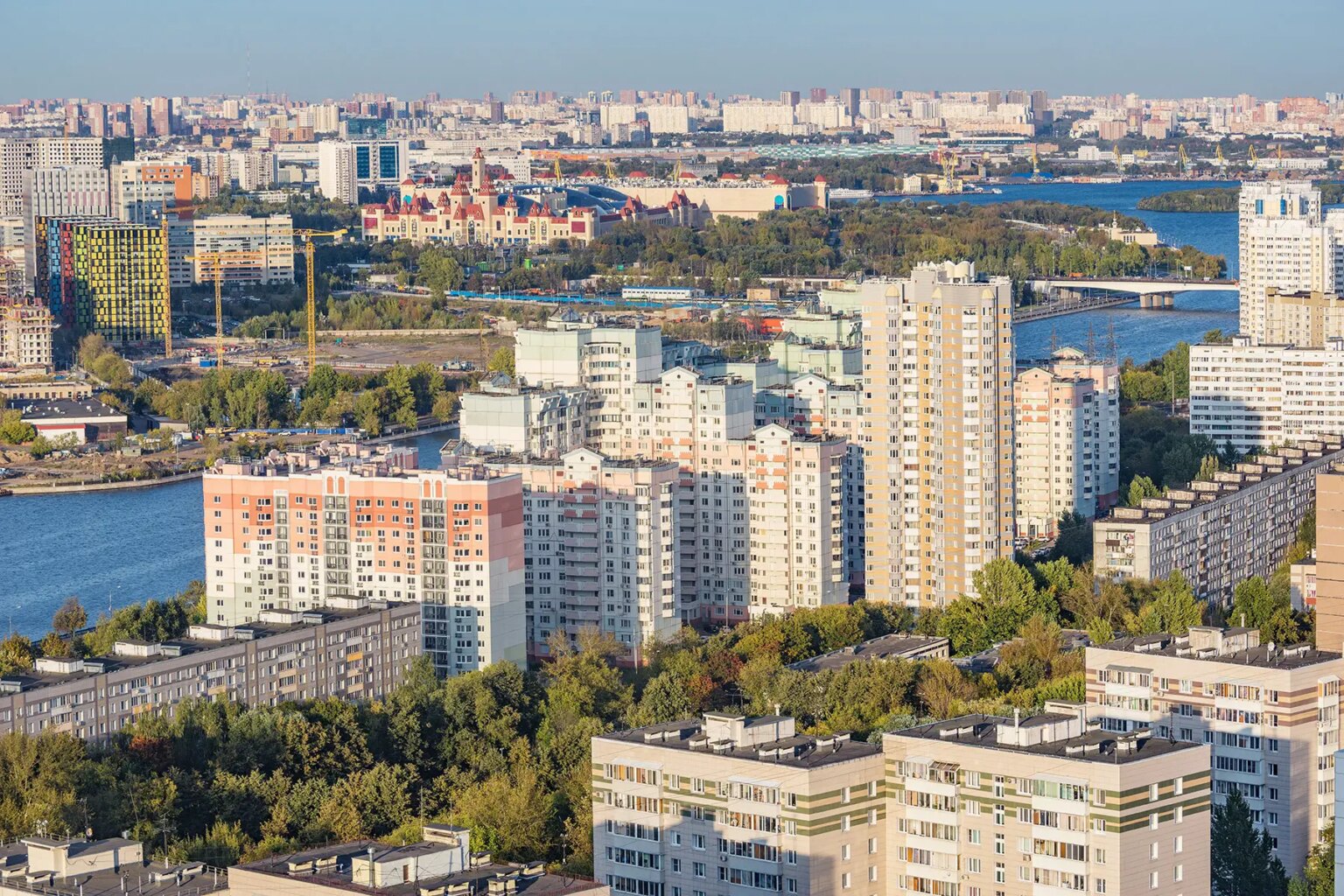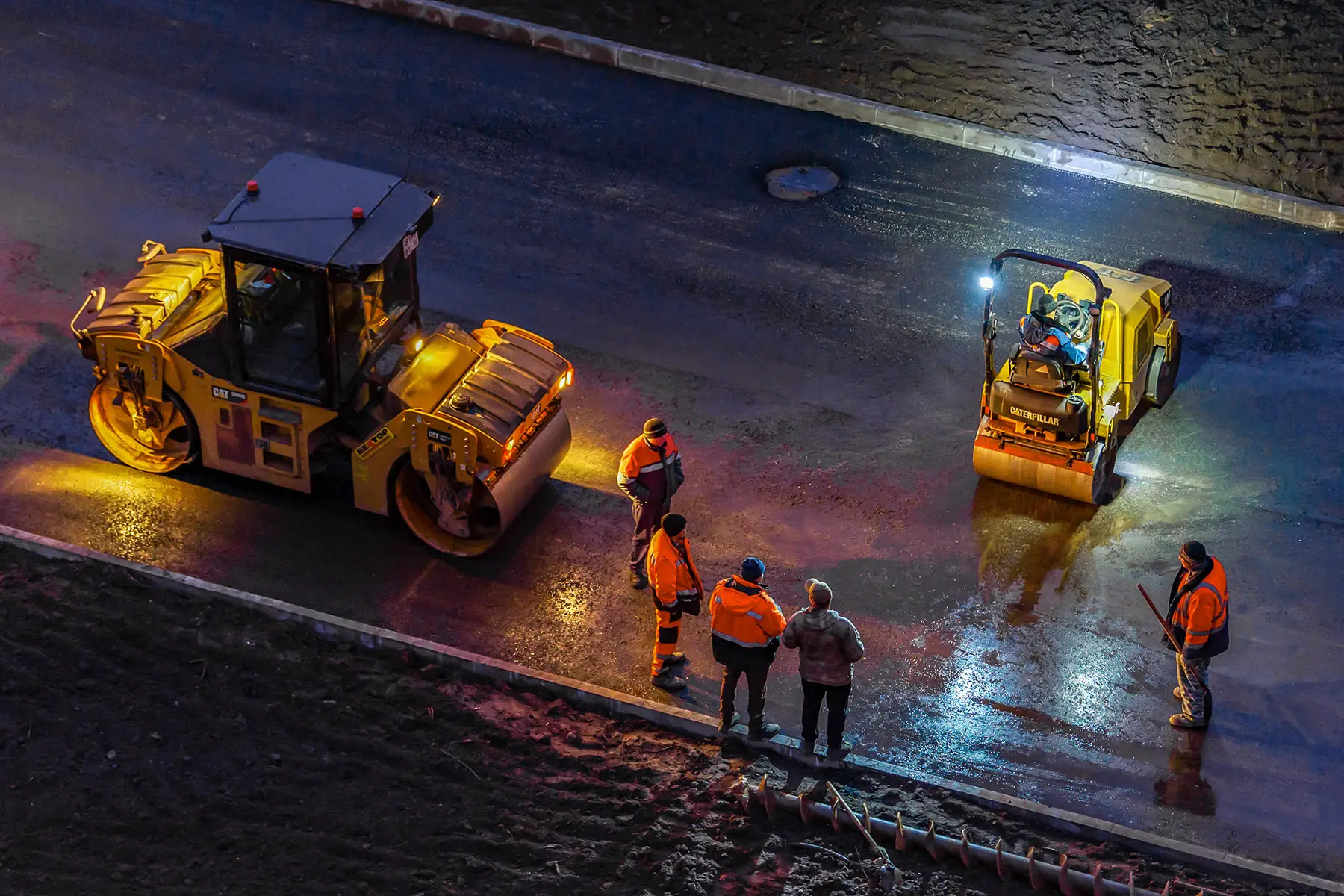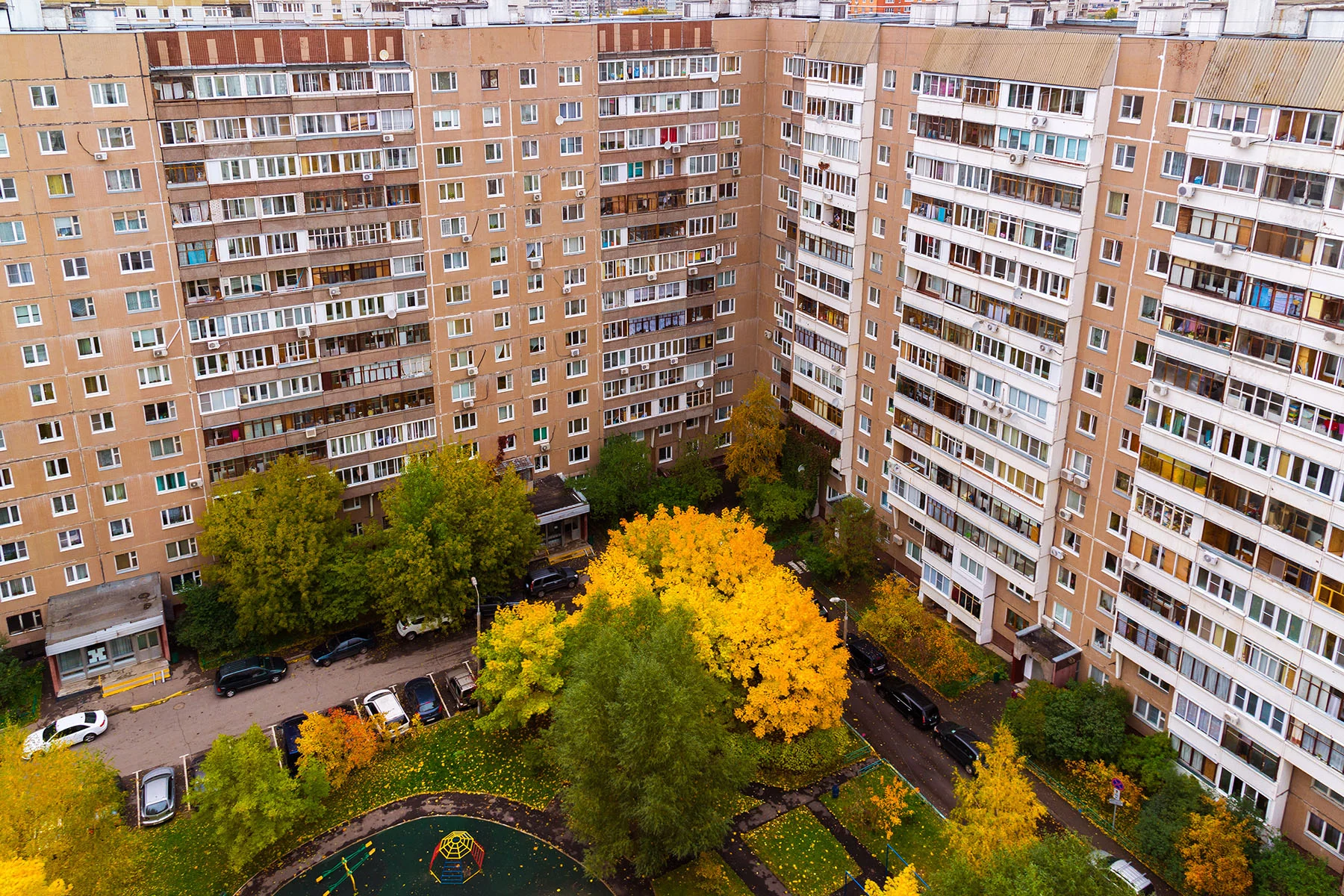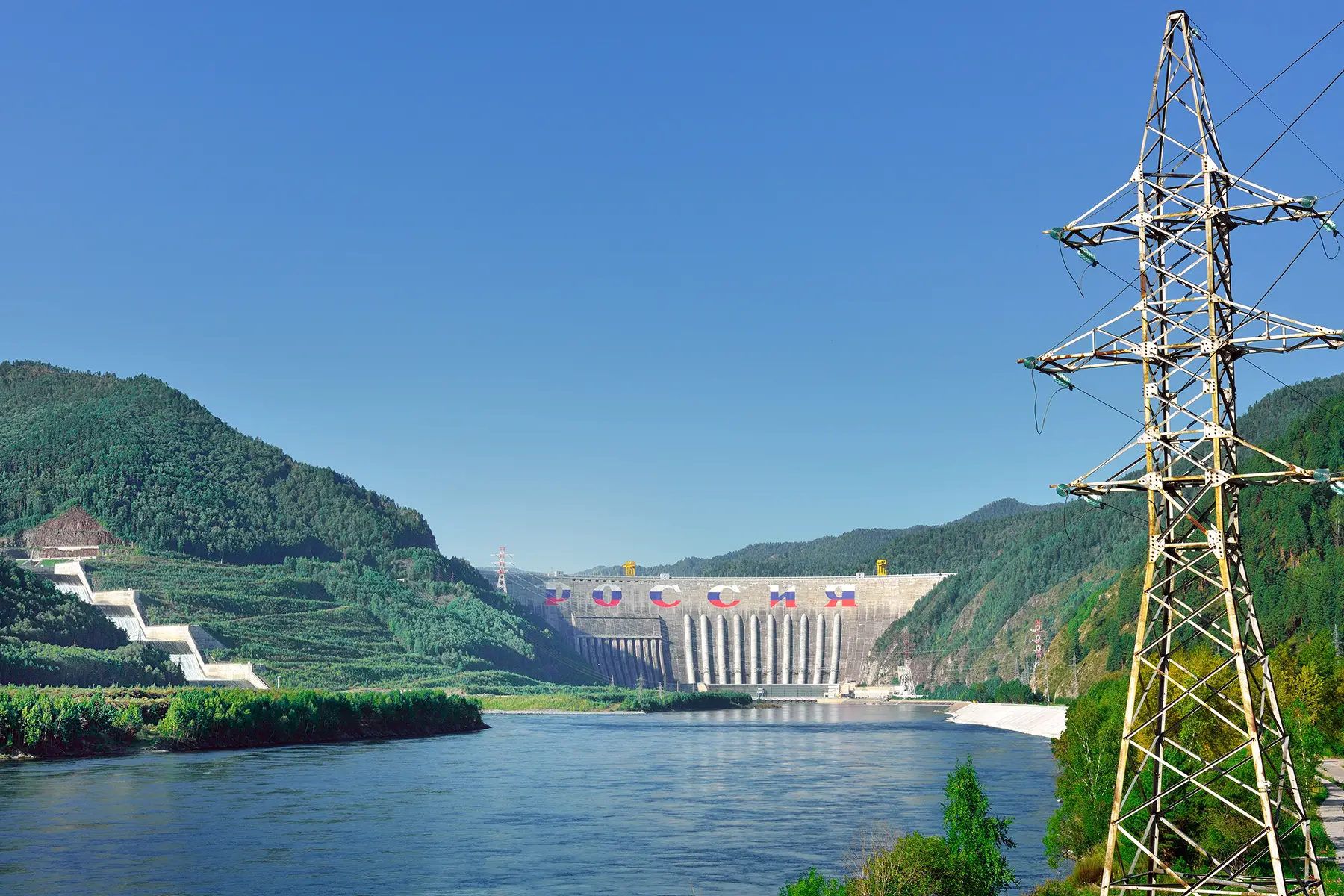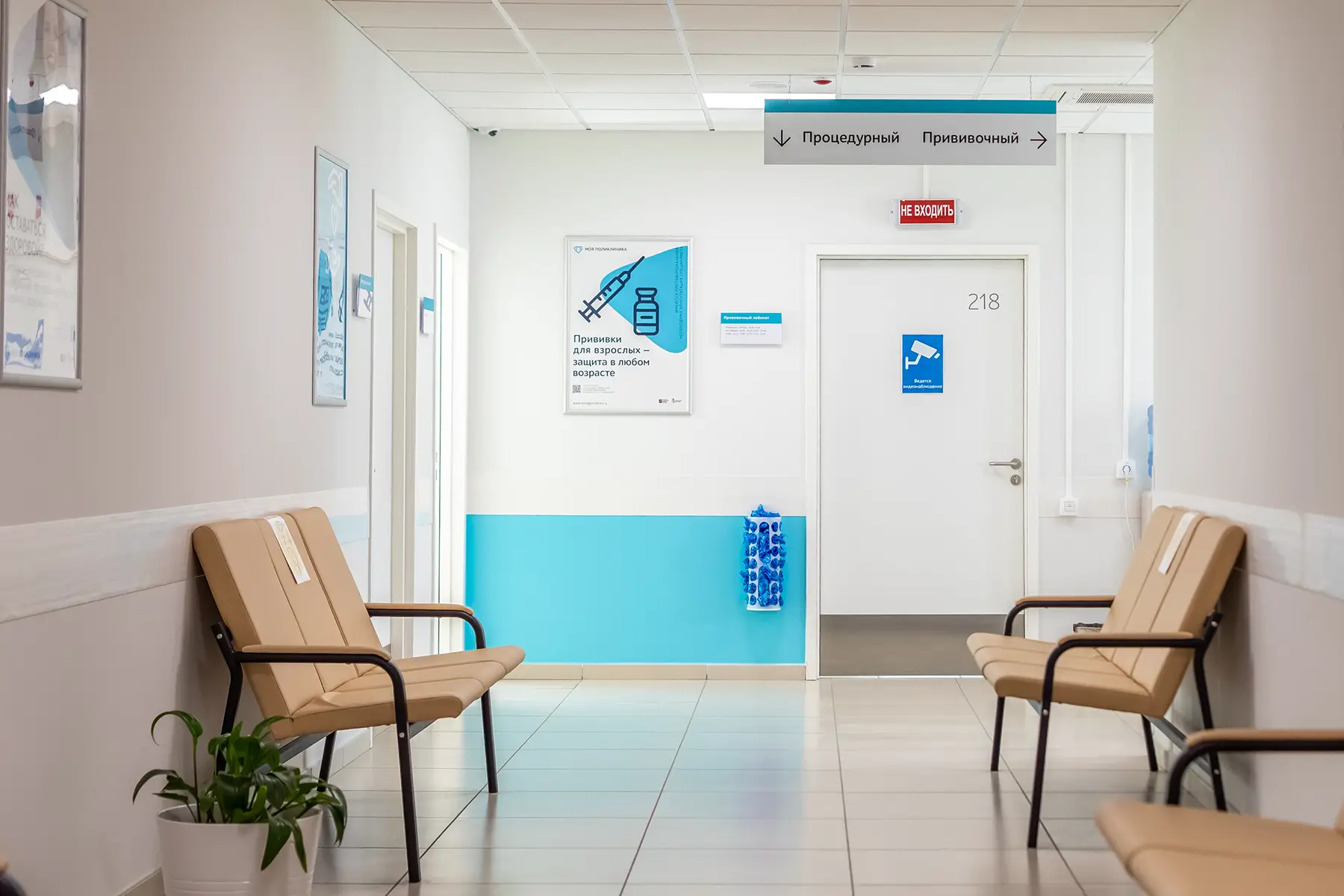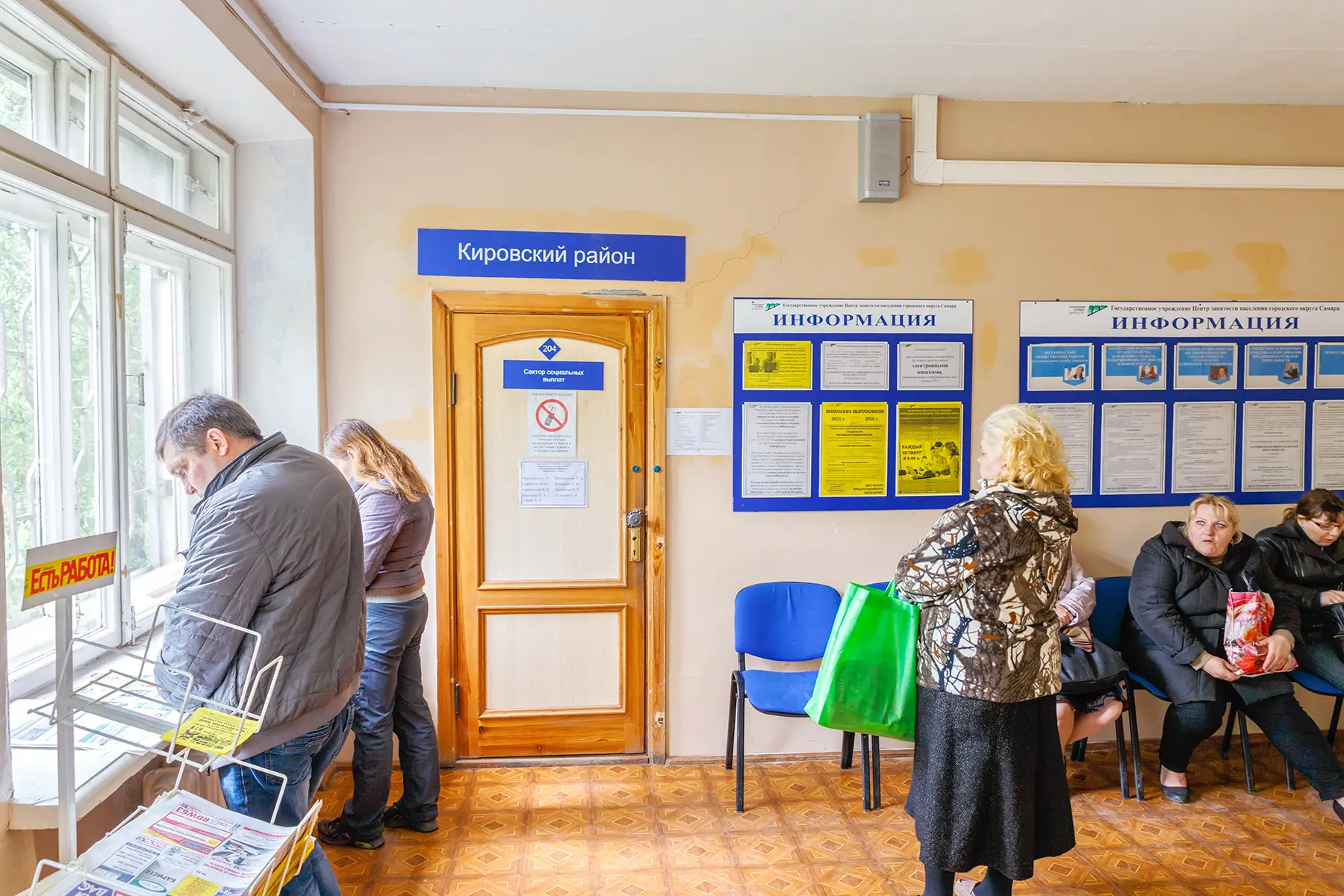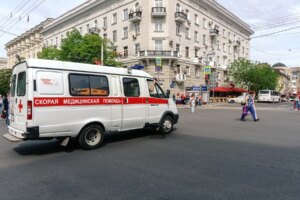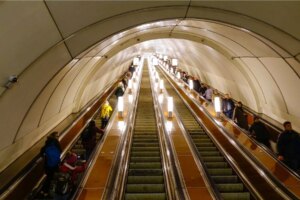Important notice from the Editor in Chief
Maintaining our Russian site is a delicate matter during the war. We have chosen to keep its content online to help our readers, but we cannot ensure that it is accurate and up to date. Our team endeavors to strike the right balance between giving information to those who need it, and respecting the gravity of the situation.
Since Russia’s full-scale invasion of Ukraine in 2022, economic sanctions, inflation, and supply chain issues have led to price increases across the board.
Although costs are still lower than in many other European countries, Russian wages are also lower on average, making it challenging to cover everyday expenses. Furthermore, internationals with money in foreign banks may find it difficult to access their funds due to financial restrictions.
Below, explore the current cost of living in Russia, including housing, groceries, transportation, and healthcare.
What is the state of Russia’s economy?
According to the International Monetary Fund (IMF), Russia is an emerging and developing economy. It has the world’s fourth-largest economy in terms of GDP based on purchasing power parity (PPP), but falls to 45th place in GDP per capita.
Furthermore, there is a huge regional disparity in means. The richest region (according to GRDP per capita) is Tyumen Oblast (3,637,117 ₽ in 2022), while the Republic of Ingushetia’s was about 96% lower (159,604 ₽ in 2022).
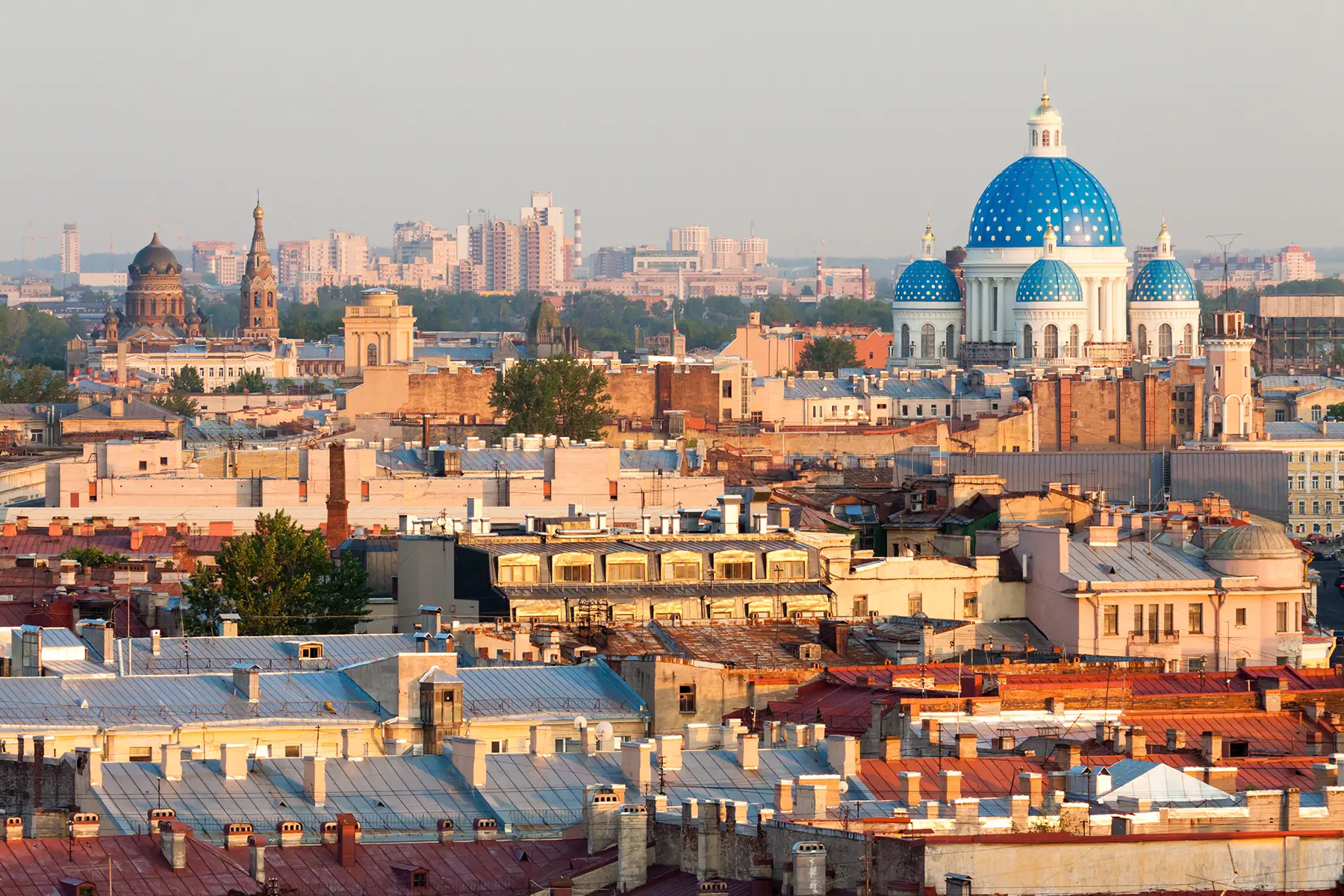
Despite European, American, and other countries’ sanctions on Russia, the economy has grown since 2022. This growth is thought to be thanks to the country’s recent surge in military spending and its status as a leading exporter of oil and gas.
Inflation and disposable income in Russia
The Russian ruble has experienced volatility over the years. This leads to uncertainty and price fluctuations, so expats still living in the country often try to convert their earnings into a more stable currency as quickly as possible.
Furthermore, inflation in Russia has been high since the collapse of the Soviet Union in 1991. Although the situation is now more stable, the IMF gives an inflation rate of 7.4% for 2024, which is expected to fall to 4.8% in 2025 and 4% from 2026 onwards.
According to the Federal Government Statistics Service (Федеральная служба государственной статистики – Rosstat), 8.3% of the population lives below the poverty line, earning less than 15,679 ₽ per month. However, some outlets dispute this figure, as Rosstat changed its methodology in 2021 to discount purchasing power and inflation, and suggest that this figure could be closer to 15%.
The average monthly wage in Russia is 86,339 ₽ (November 2024), but this ranges from 38,931 ₽ in Ingushetia to 193,483 ₽ in Magadan Oblast. The average incomes in Moscow and St. Petersburg are 150,391 ₽ and 106,267 ₽ respectively.
Russia compared to its neighbors
Russia borders 14 countries in Europe and Asia. Its GDP as a whole is second only to China’s, but Poland, Latvia, Lithuania, Estonia, Finland, and Norway all have a higher GDP per capita.
The country is part of the Eurasian Economic Union (EAEU) and the BRICS association.
Although it has access to trade routes in Europe and Asia, European sanctions mean that most of its imports and exports nowadays are with Asian countries. Most of its exports in 2023 went to China, India, and Türkiye. Its most significant exports were natural resources, including crude petroleum, refined petroleum, and petroleum gas.
The cost of living in Russia in 2025
Numbeo’s online surveys suggest that monthly living costs in Russia without rent are around 46,769 ₽.
According to Rosstat, excluding housing, the average person spends the most on food, transport, and utility bills.
The price of groceries in Russia in 2025
Food and drink
Statista estimates that consumer per capita spending on food and non-alcoholic beverages will reach US$1,840 (164,766 ₽ – March 2025) in 2025.
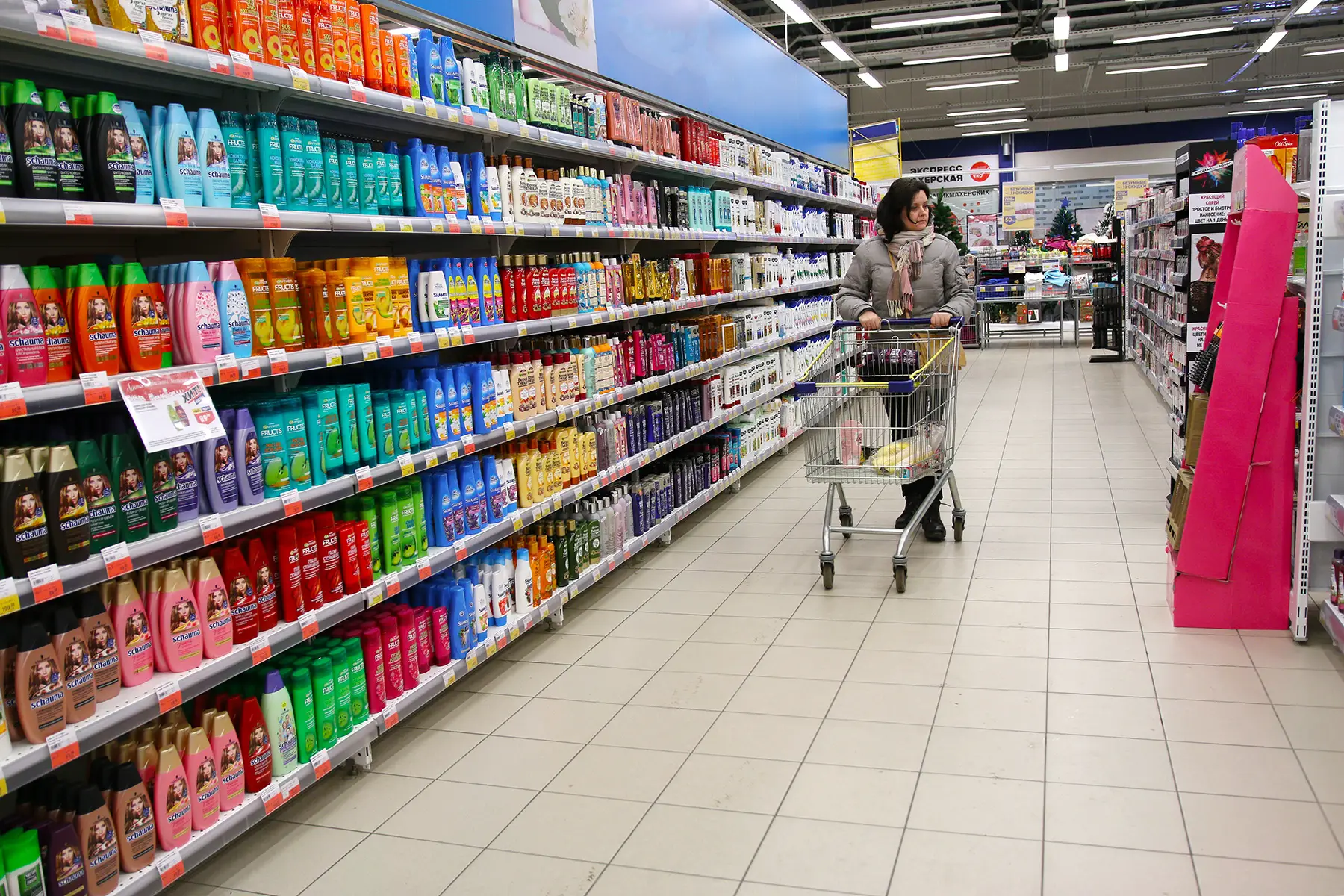
Even though there are plenty of affordable supermarkets all over Russia, the quality can vary. During the winter months, vegetable counters in supermarkets are visibly drained, and imported items can be prohibitively expensive.
Here are some typical prices for products in Moscow:
- 1 liter of milk – 99 ₽
- Loaf of fresh white bread – 65 ₽
- 1 kilogram of rice – 128 ₽
- 1 kilogram of apples – 146 ₽
Beer, wine, and liquor
A half liter of domestic beer in a restaurant will set you back about 350 ₽. Meanwhile, if you buy your beer in a supermarket, you’re likely to pay a lot less – domestic beer sells at 86 ₽, while imported beers cost around 179 ₽ per bottle. Mid-range wine costs 500–5,000 ₽.
While Russians have a reputation for drinking vodka, they buy far more beer. That said, the minimum price for vodka is 203 ₽ per half liter, but it’s usually a good idea to spend a bit more.
Hygiene and household products
Below, you can find some typical supermarket prices for hygiene and household products:
| Product | Price range | Product | Price range |
| All-purpose cleaner (1 liter) | 239–898 ₽ | Shampoo (500 ml) | 240–1170 ₽ |
| Deodorant (50 ml) | 110–472 ₽ | Soap (1 liter) | 150–920 ₽ |
| Dish soap (1 liter) | 65–550 ₽ | Tampons (per tampon) | 8–36 ₽ |
| Garbage bags (per bag) | 0.7–34.35 ₽ | Toilet paper (per roll) | 20–50 ₽ |
| Laundry detergent (per wash) | 100–845 ₽ | Toothpaste (75 ml) | 90–510 ₽ |
2025 housing costs in Russia
Accommodation in Russia generally falls into two categories: apartments within the city or houses outside the city. Renting in Russia, particularly in Moscow, can be competitive and expensive. Some tenants pay several months’ rent upfront to ensure they get an apartment.
Rent and property prices
Mortgage rates and rental prices have soared in recent years, with some banks offering mortgages with interest rates of up to 30%. Furthermore, the median rent per square meter increased by 17.3% in 2024.
Many city apartments are in high-rise blocks with a shared entrance, stairway, and, if you’re lucky, an elevator. According to Numbeo, the monthly rental of a one-bedroom flat in the center of Moscow costs 70,000–150,000 ₽.
Meanwhile, outside the city center, prices are, on average, 62,000 ₽. For a three-bedroom apartment in Moscow city center, you can expect to pay about 230,000 ₽ or 75,000 ₽ on the outskirts.
If you’re moving to Russia indefinitely, you could consider buying a home. The price per square meter is around 683,000 ₽ in Moscow city center, and 321,000 ₽ outside. These prices are comparable to other major European cities.
Prices are significantly cheaper in other cities. In Nizhny Novgorod, for example, you could buy a city center apartment for 128,000 ₽ per square meter.
You can generally borrow a maximum of 80% of the sale price for a property in Russia, and your mortgage payment must not exceed 35% of your income.
Utility bills: water, gas, electricity
Russian electricity prices are among some of the cheapest in the world, estimated at 5.38 ₽ per KWh in March 2025. According to Numbeo, you will pay utility costs of around 11,600 ₽ per month for an 85-square-meter apartment. These costs include electricity, water, heating, and garbage.
The costs of Russian healthcare
Free healthcare is available for residents of Russia, but it has a reputation for being disorganized, underfunded, and difficult to navigate. In addition, compulsory health insurance can be limited in coverage. With this in mind, many expats decide to take out private health insurance in Russia. Many companies offer health insurance in their employment packages.
If you choose to take out your own private health insurance, bear in mind that this can cost several thousand euros per year. Read our guide to health insurance in Russia for more information.
In addition, since 2021, expats must undergo regular health checks. These happen every three months to a year, depending on the clinic. You can expect to pay 3,000 ₽ to 5,000 ₽.
Internet and telecom prices in Russia
Television in Russia is, in principle, free, but if you want more choice in channels, you will need to find a cable or satellite package. For example, you may find packages from 1,500–7,000 ₽ per year, depending on how many users and screens you have and which content you wish to access.
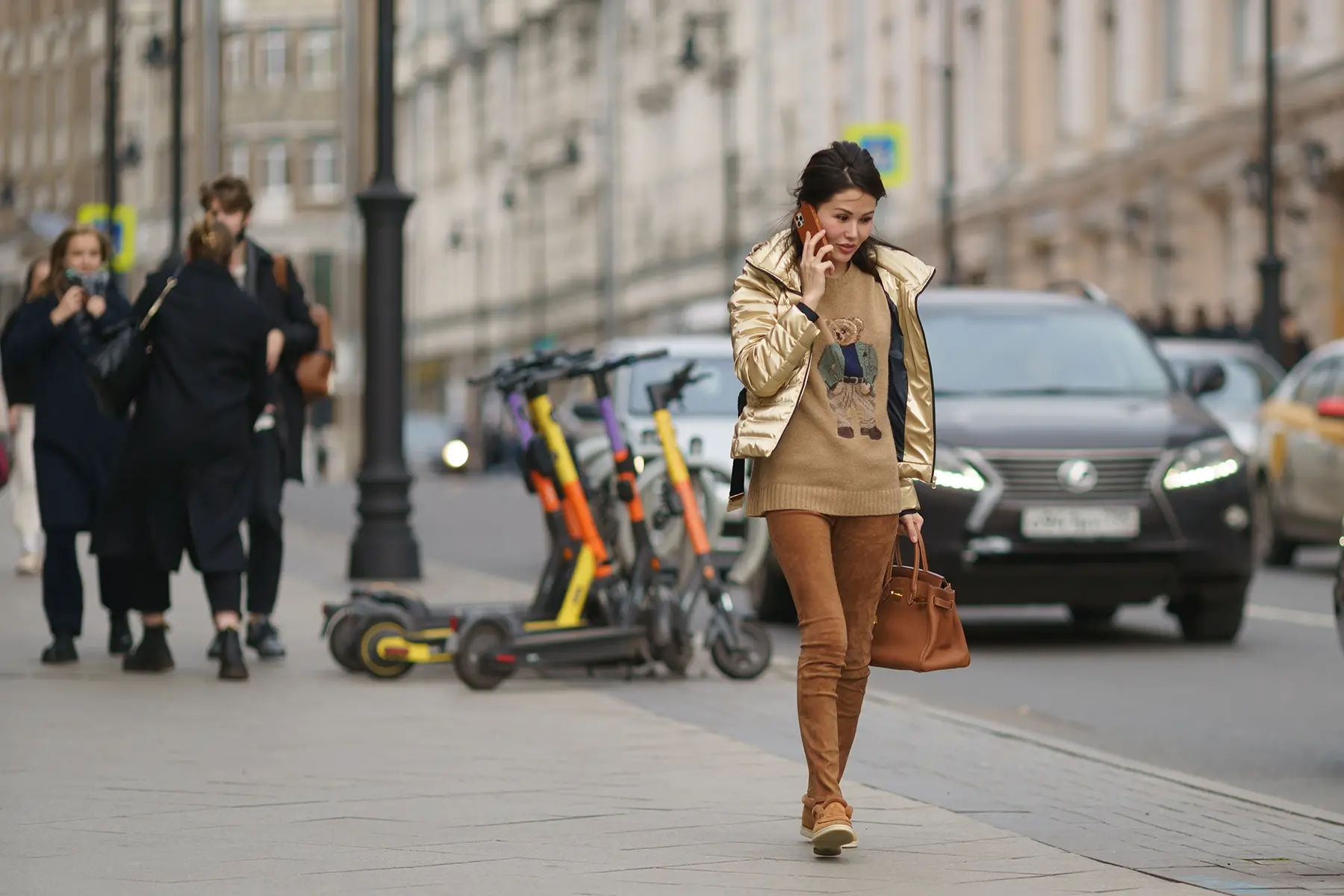
There are several internet providers in Russia. MTS, for example, provides home internet for 500–990 ₽ per month, depending on speed. In addition, many providers also offer TV, phone, and internet in a single package.
The cost of clothing and footwear
The price of clothing in Russia is similar to elsewhere in Europe. A pair of mid-range jeans costs 5,700 ₽, while a dress from a chain store costs about 3,500 ₽. These costs are about the same in most major Russian cities. A pair of business shoes will set you back about 8,000 ₽.
The costs of transportation in Russia
Public transport
Public transport, especially the metro, is cheaper and faster than driving in rush hour. It’s also a way to avoid the notorious Moscow traffic jams.
Most cities in Russia have a good public transport system, including trams, trolleybus, marshrutki (маршрутки – routed taxis or minibuses), and buses. Big cities also have metro systems.
To use public transport in Moscow, you have two options:
- All-in-one ticket – for all modes of transport, can be bought for one journey (75 ₽), two journeys (150 ₽), one day (365 ₽), or 3 days (700 ₽)
- Troika card – for all modes of transport, deposit 50 ₽. You can then top up this card. Journeys cost 63 ₽ for a single journey and 94 ₽ for a 90-minute journey with changes.
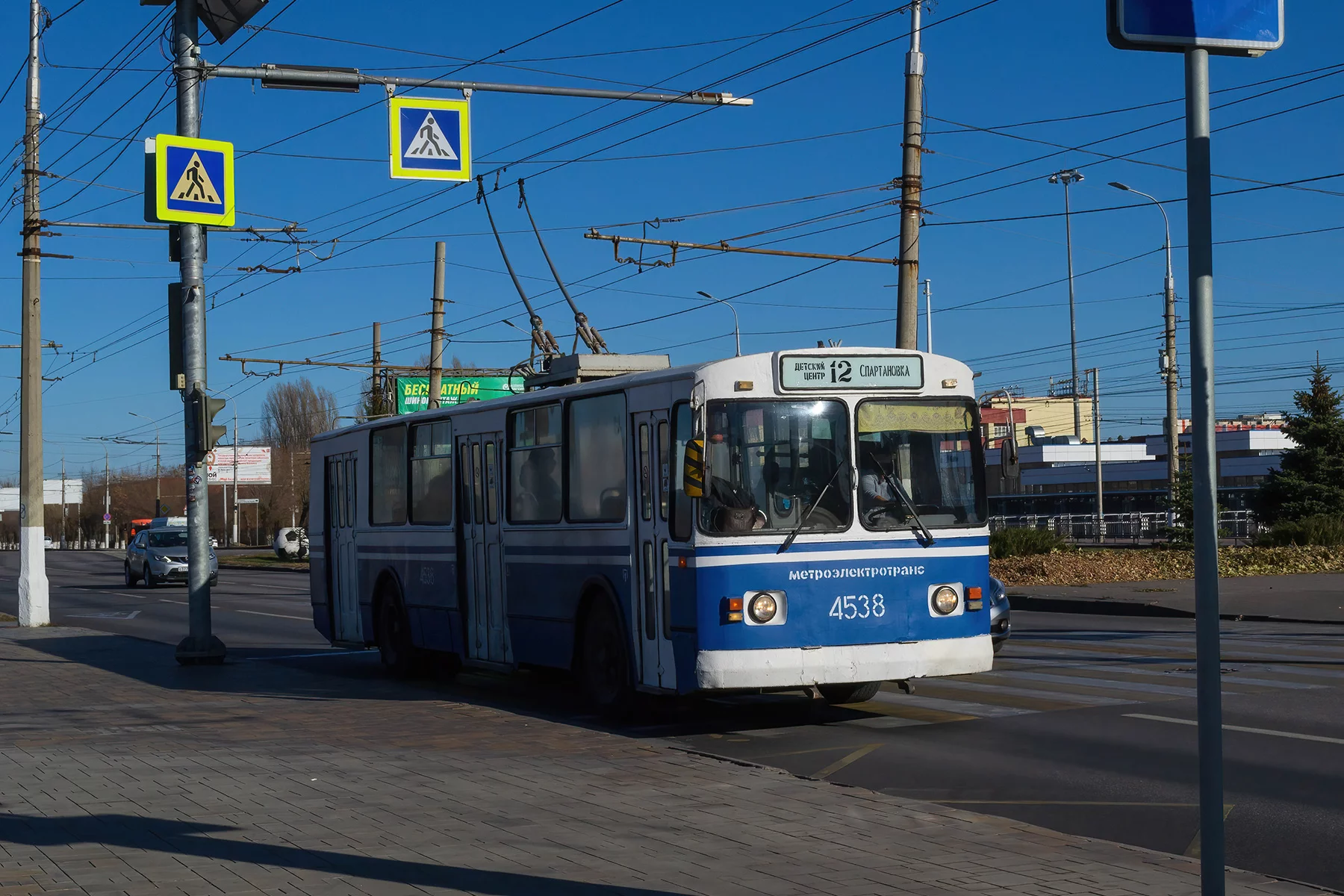
In other cities, you can buy a ticket or token (жетон) for a single metro journey from a ticket machine at the station. Many cities also allow travelers to pay by contactless card at the ticket barrier. A single trip generally costs:
Those using public transport regularly can sometimes buy a monthly pass or a set number of tickets at a reduced price. Some cities also allow senior citizens to travel for free or a discount – check your regional transport websites to find out what’s available.
Marshrutki and taxis
In some cities, marshrutki are run by private companies, while in others, they form part of the local transport network. These minibusses run along a set route and stop almost anywhere. Fares are about one-and-a-half times what you’d pay on a normal bus route.
There are a few ways to get a taxi in Russia. Flagging one down in the street is one option and often cheaper, but it’s also the least safe way – sometimes, random cars or unlicensed cabs will offer you a ride. On these occasions, it’s usually best to politely decline.
Otherwise, Russia has several apps for hailing a taxi. Yandex taxi in Moscow, for example, starts at 189 ₽ and charges 13–21 ₽ per kilometer or 13 ₽ per minute.
Driving and vehicle costs
The average price of a new passenger car in 2024 was 3 million ₽. Used cars cost around 2 million ₽, but you can find them for as little as 950,000 ₽ on online marketplaces.
If you’re moving from the US or Europe to Russia, you may find that, as a result of sanctions, the cars available to purchase are slightly different from your home country. Since 2023, the car import market has changed greatly – around 81% of imported cars now come from China.
In addition to the price of a car and a driver’s license, you should budget for:
- Car insurance: for a passenger car, the basic mandatory coverage costs 1646–7535 ₽.
- Vehicle tax: the amount depends on which region you live in.
- Vehicle inspection: your car must undergo a routine inspection every 12–24 months, and the minimum cost for passenger cars is 913 ₽.
- Fuel costs: like electricity costs, fuel is relatively cheap in Russia. Current prices are 60.45 ₽/L for gasoline and 70.4 ₽/L for diesel.
For more information on driving in Russia, read our dedicated article.
How much do leisure activities cost in Russia?
Movie theaters and cinemas
Cinema tickets in Russia are, on the whole, quite affordable. For example, you can expect to pay 400–600 ₽ for an evening showing in a chain cinema in Moscow or about half of this for a morning showing. Most movie theaters give discounts for children, students, pensioners, and disabled people.
Restaurants
The larger cities of Russia offer a wide choice of eating out. You can try typical Russian cuisine, Ukrainian, or Caucasian cuisines, as well as food from Central Asia and Korea.
A meal at a modest restaurant costs around 700 ₽ for a person, while a three-course meal for two people at a mid-range restaurant can go up to 3,000 ₽ each.
Sports
A pair of running shoes in Moscow costs about 11,000 ₽. Once it gets colder, you might consider buying a gym membership – this goes for around 2,000 to 8,000 ₽.
The costs of Russian education and childcare
Childcare
State kindergarten (детский сад) is available for children up to the age of seven. Families in Moscow can recover 20% of the costs for their first child, 50% for their second, and 70% for subsequent children. Reimbursement is possible for both public and private nurseries, but check before applying.
Read our guide on preschool education in Russia for additional information.
If you need in-house childcare, hiring a nanny or babysitter is another option. Local babysitters might charge 300–700 ₽ per hour. In-home childcare can cost significantly more – the most expensive option is hiring an international nanny.
Children’s education
Russia boasts several international schools for expatriates to send their children. However, some expats prefer local Russian primary schools. The standard of education is high, but local schools teach only in Russian. Public schools in Russia are free for anyone living in Russia, including foreigners.
Saint Petersburg and Moscow are both home to plenty of international schools. Most of these schools base their curriculum on the American or British system, but there are also French and Russian schools, as well as method schools.
As an example of cost, the International School of Moscow charges €24,990–43,600 (applying the current ruble exchange rate) per year, depending on which grade your child is in.
University tuition fees
The choice of universities in Russia is very broad. The education standard is quite high: 47 of its institutions have been featured in the QS World University Rankings of 2025, and four universities from this list are among the top 400 universities worldwide.
Many universities offer a choice of a four-year bachelor’s degree or a five-year specialist degree. The prices of university education in Russia differ according to the degree program and the university itself.
How does Russia’s cost of living compare to the rest of the world?
Although Russia’s living costs are unpredictable, the country offers a reasonable standard of living. Indeed, Wisevoter’s Human Development Index ranks it 52nd in the world.
Russia does not appear on global indexes such as Mercer’s Cost of Living City Ranking, but data from Numbeo shows that many cities have a lower cost of living than countries in western Europe and the US. On the other hand, local purchasing power is lower than the worldwide average.
The cost of living in Moscow
The cost of living in Moscow is generally lower than in other European capitals. However, it is much higher than other cities in Russia.
As of early 2025, the cost of living in Moscow (excluding rent) was:
- 58.4% lower than New York, US
- 49.1% lower than London, UK
- 39.7% higher than Kyiv, Ukraine
- 53.8% higher than Bishkek, Kyrgyzstan
- 69.6% higher than Dushanbe, Tajikistan
- 88.9% higher than Delhi, India
The cost of living in Saint Petersburg
Saint Petersburg tends to be less expensive than Moscow.
The cost of living in this city at the beginning of 2025 was:
- 65% lower than New York
- 57.2% lower than London
- 17.5% higher than Kyiv
- 29.3% higher than Bishkek
- 42.6% higher than Dushanbe
- 58.8% higher than Delhi
The cost of living in Novosibirsk
Novosibirsk is Russia’s third-largest city. In 2025, its cost of living was:
- 70.9% lower than New York
- 64.3% lower than London
- 2.1% lower than Kyiv
- 7.7% higher than Bishkek
- 18.8% higher than Dushanbe
- 32.3% higher than Delhi
The cost of living in Yekaterinburg
The cost of living in 2025 in Yekaterinburg, Russia’s fourth-largest city, was:
- 69.3% lower than New York
- 62.4% lower than London
- 3.2% higher than Kyiv
- 13.6% higher than Bishkek
- 25.2% higher than Dushanbe
- 39.5% higher than Delhi
Financial aid for the cost of living in Russia
The social welfare system in Russia allows residents of Russia to receive financial help in certain circumstances. You can find an overview of services on the Portal of Public Services of the Russian Federation (Госуслуги, Gosuslugi) website.
To receive unemployment benefits, in most cases, you need to apply online. You can receive benefits for three to 12 months, depending on your situation.
Useful resources
- Russian Government website – for economic indicators of prices, such as inflation and tax news
- Russian governmental services portal (Госуслуги, Gosuslugi) – to find out about and register for benefits and other services
